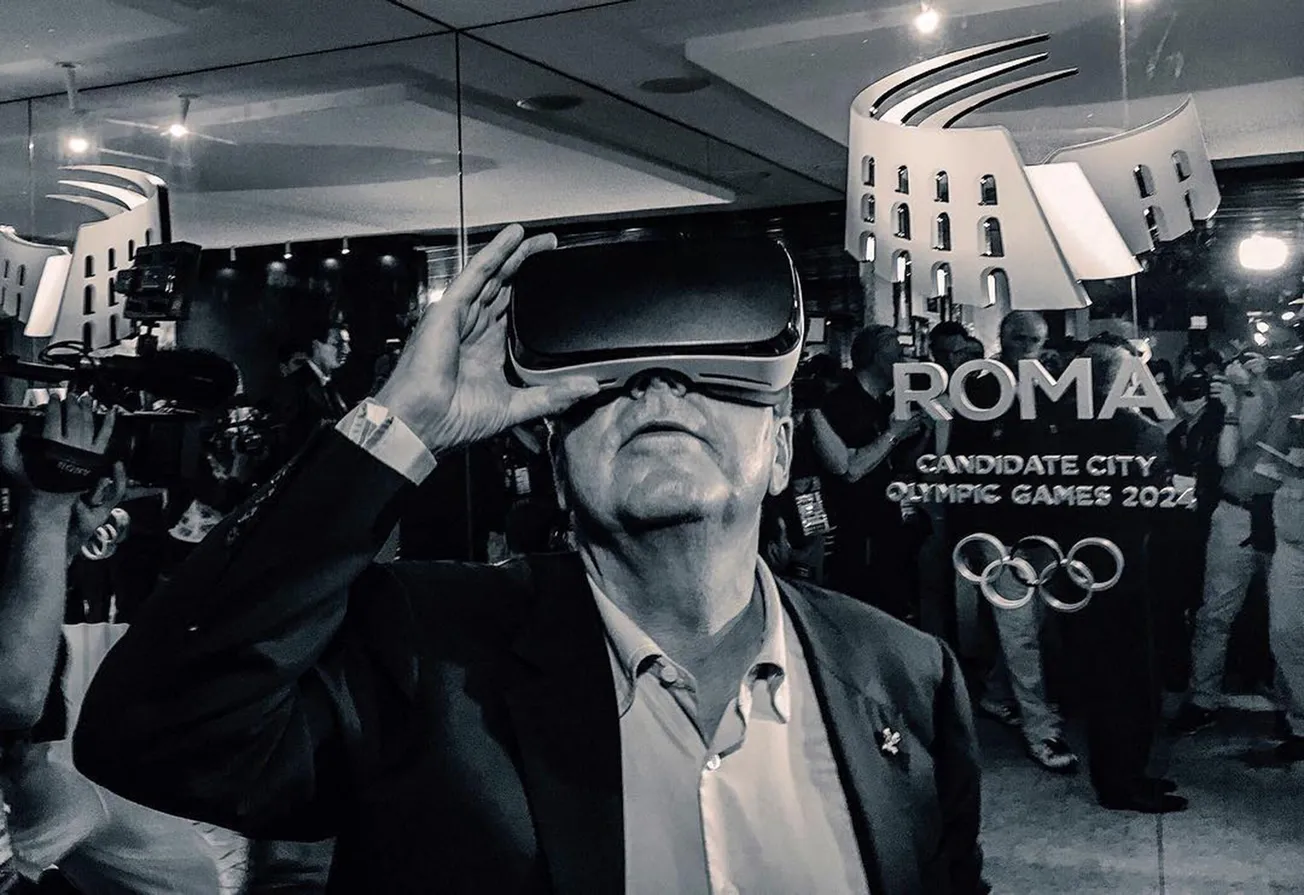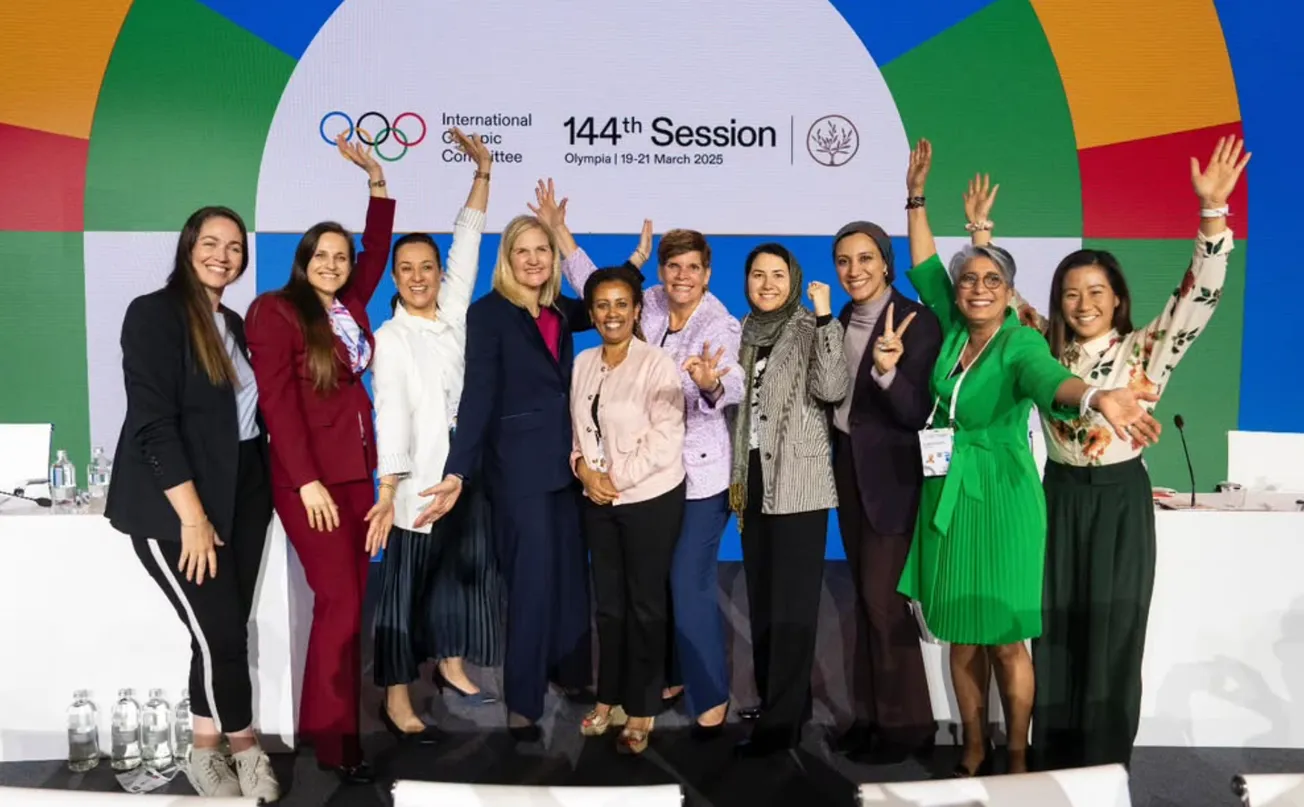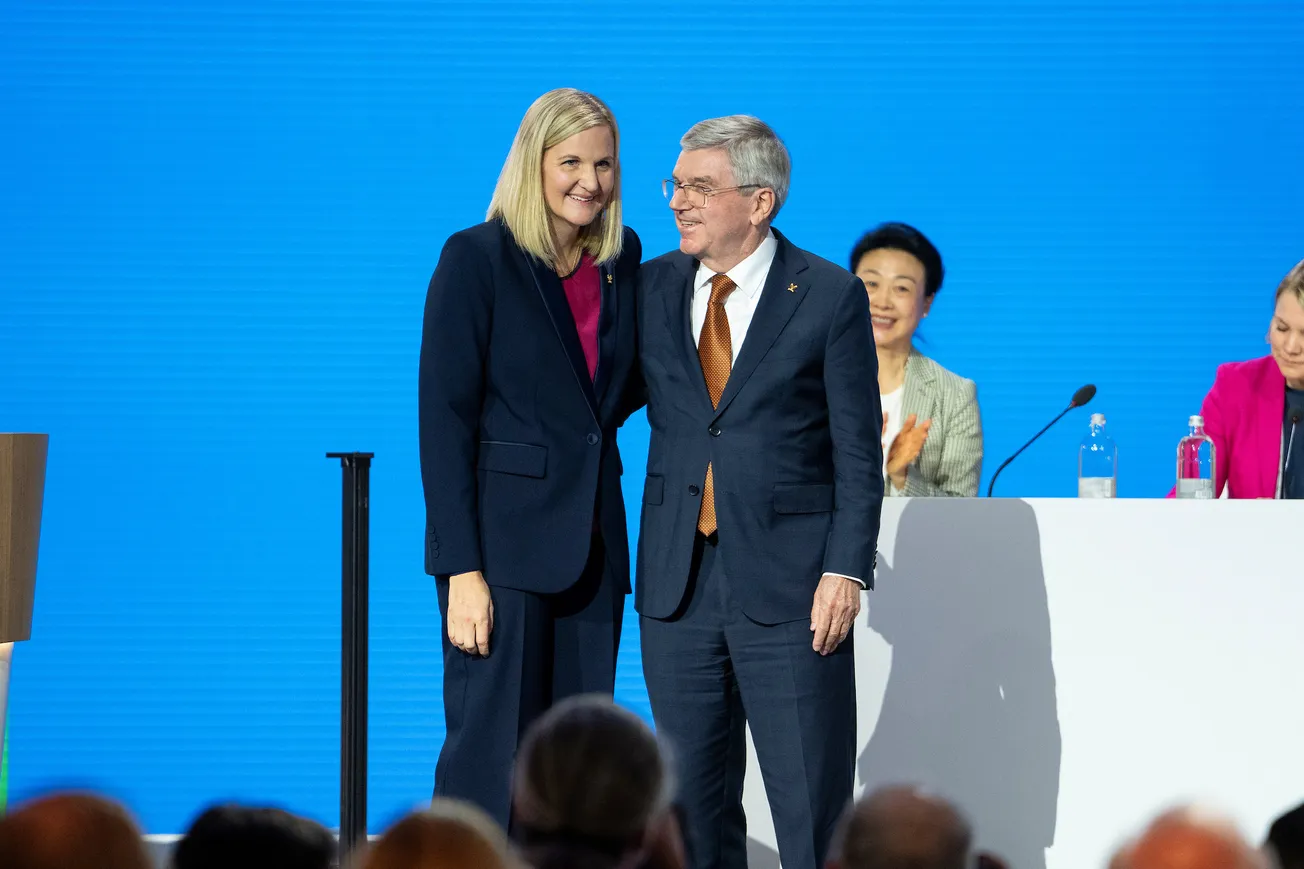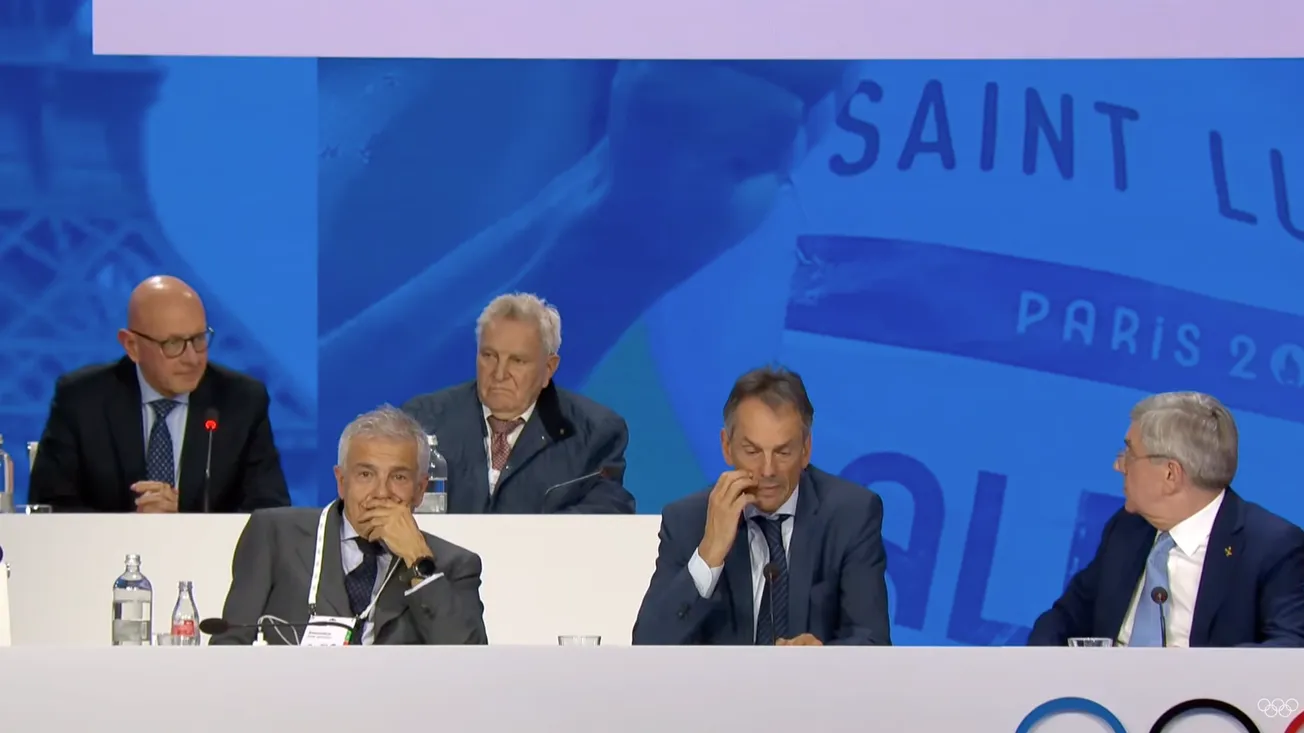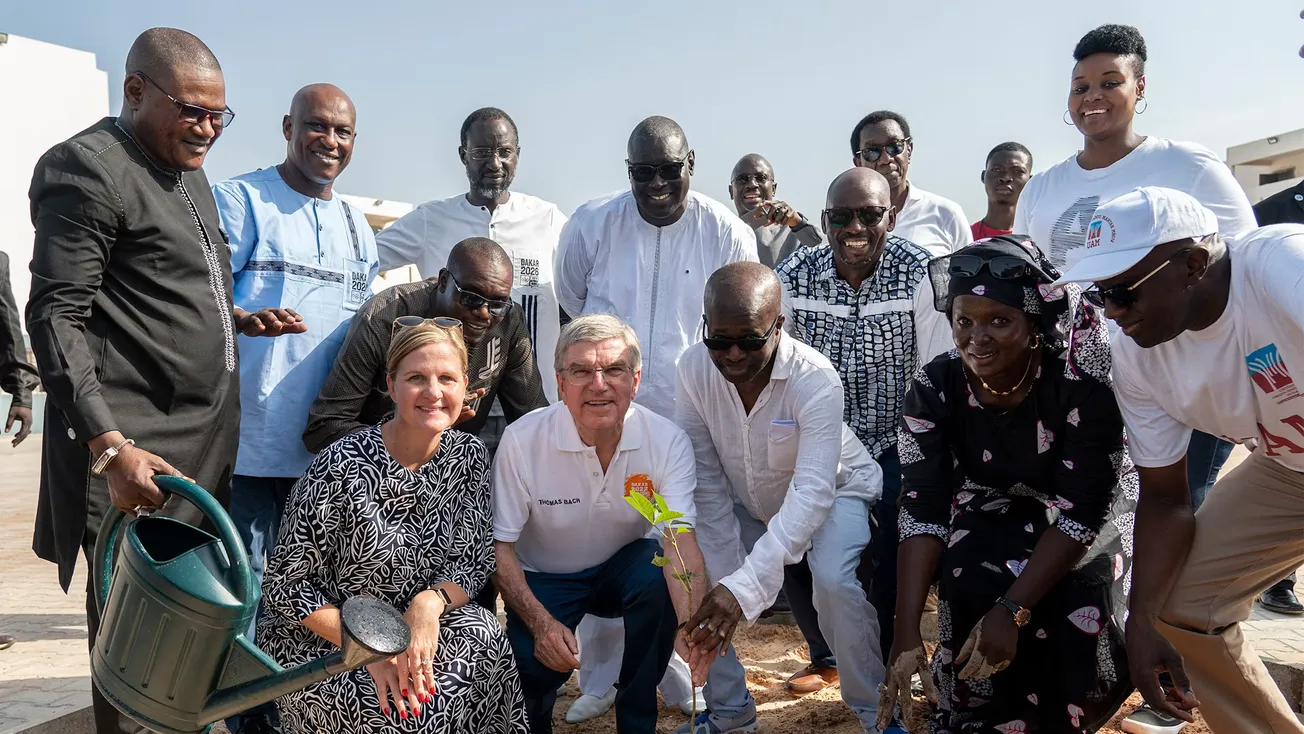Here we go. How good that I made the tiny qualification in last week's article on Nawal El Moutawakel that she would probably become IOC president if she submitted a candidature. But she didn't. And neither did Nicole Hoevertsz. Bad luck, wipe your mouth, move on. If you don't make an effort and don't try everything, you can't make mistakes.
Neither Nawal nor Nicole are running. These are the first two surprises on the list of 7 candidates that the IOC put online a few minutes ago. Kirsty Coventry is the only woman on the list. I don't know anyone in this business who would have predicted all this. It's dominated by amazement. There is a lot of pondering.
Chapeau, Thomas Bach, the confusion is complete - and that doesn't just apply to the Olympians, it applies to all Olympic castes.
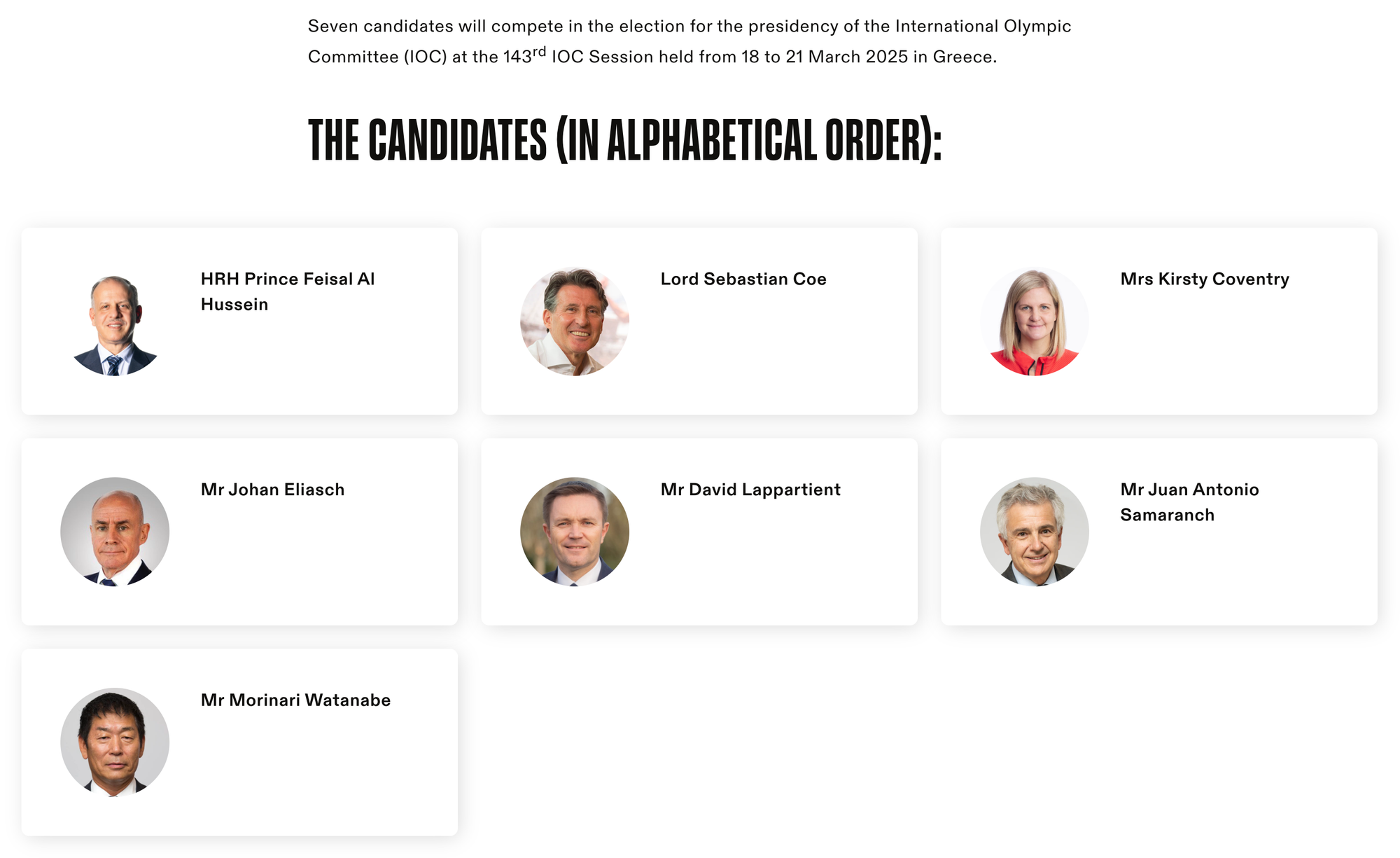
So these are the candidates, the links lead to the IOC website, where the status questions for all candidates are listed, more on this in a moment:
- HRH Prince Feisal AL HUSSEIN, Jordan
- Lord Sebastian COE, Great Britain
- Mrs Kirsty COVENTRY, Zimbabwe
- Mr Johan ELIASCH, Great Britain
- Mr David LAPPARTIENT, France
- Mr Juan Antonio SAMARANCH, Spain
- Mr Morinari WATANABE, Japan
Once again, the organisational basics:
- Between 20 and 24 January 2025, the IOC will meet in Lausanne to listen to the presentations of all candidates in camera.
- Between 18 and 21 March 2025, the IOC will meet for its 143rd session at a luxury resort in Costa Navarino on the Peloponnese. Elections will be held by secret ballot.
- A simple majority is sufficient. Members from the country of the candidates standing for election do not have the right to vote in the respective rounds. If no candidate achieves an absolute majority, the last-placed candidate is eliminated and the next round begins.
- It is quite possible that the new president will then be announced at the IOC's Olympic centre. The extent to which the Olympics as a whole will be involved in this session has not yet been finalised.
- However, Bach will not hand over the reins until 23 June 2025, Olympic Day, the 131st birthday of the IOC. The new one will take office on 24 June. Bach calls it transition period.
Since the IOC was founded in 1894, only one woman - Anita Defrantz from the USA - has stood for election to the presidency. Kirsty Coventry is the second woman to do so.
| 1 | Demetrius Vikelas | Greece | 1894-1896 |
| 2 | Pierre de Coubertin | France | 1896-1925 |
| 3 | Henri de Baillet-Latour | Belgium | 1925-1942 |
| 4 | Johannes Sigfrid Edström | Sweden | 1946-1952 |
| 5 | Avery Brundage | USA | 1952-1972 |
| 6 | Lord Michael Killanin | Ireland | 1972-1980 |
| 7 | Juan Antonio Samaranch | Spain | 1980-2001 |
| 8 | Jacques Rogge | Belgium | 2001-2013 |
| 9 | Thomas Bach | Germany | 2013-2025 |
An IOC president has been announced 22 times since 1894, starting with the three men in Paris agreeing on one of them as the first IOC president, Demetrios Vikelas. Only seven times in the 22 presidential decisions since then has there been a real election in which there was more than one candidate and the decision was not made by acclamation or otherwise unanimously (there have been many versions).
These are the seven elections:
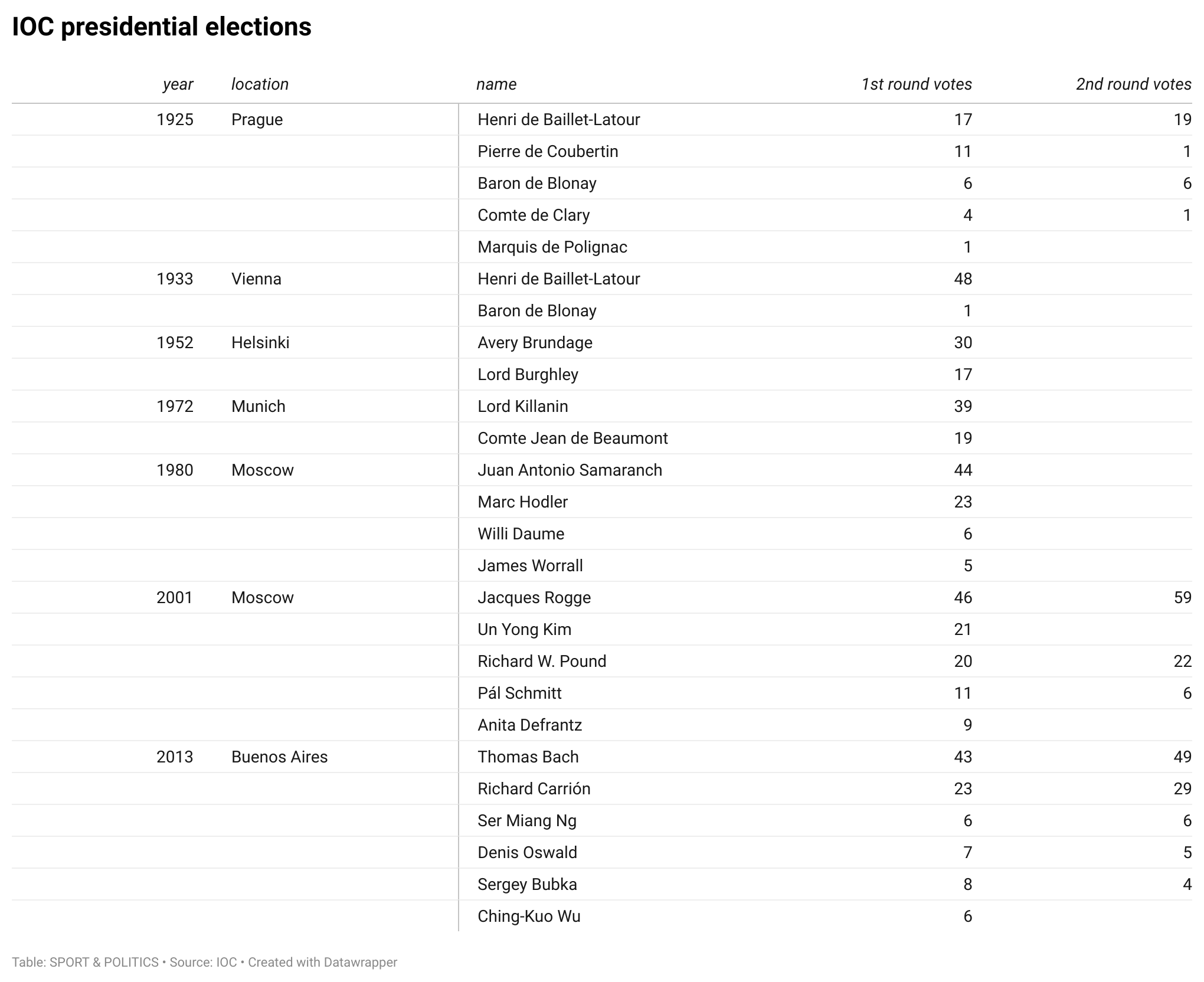
So in six months' time, we will see the eighth election in Greece. But who knows, nothing seems certain at the moment.
- The IOC has only ever had men at the top.
- The IOC has only ever had men from Europe (8) and America (1) at the top.
What do we have among the seven new candidates:
- one woman, Kirsty Coventry;
- two Olympic champions, Kirsty Coventry (3 gold) and Sebastian Coe (2 gold);
- three individual IOC members, Kirsty Coventry, Prince Feisal Al-Hussein and Juan Antonio Samaranch junior;
- four ex officio IOC members as presidents of Olympic sports federations: Sebastian Coe (World Athletics), Johan Eliasch (International Ski and Snowboard Federation FIS), David Lappartient (Union Cycliste Internationale UCI) and Morinari Watanabe (Fédération Internationale de Gymnastique FIG).
Elections in the IOC are not decided by continent. IOC members do not vote in such blocks (anymore). Nevertheless, here is an overview of the 111 members by continent and by gender - 63 men, 48 women:
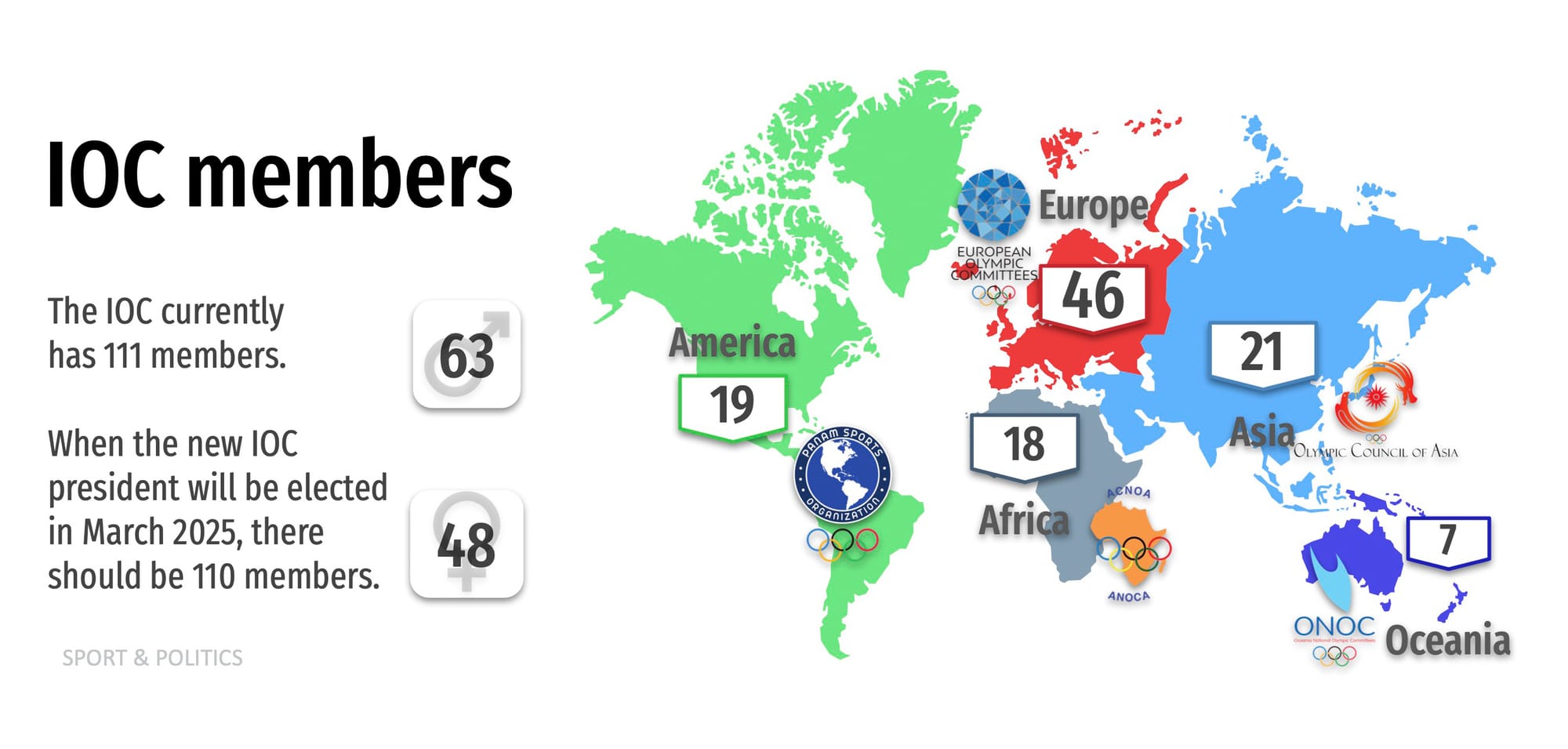
And now to the nitty gritty.
The IOC and its clownish so-called Ethics Commission have created anything but clarity in recent weeks and months. Clarity was not desired, but rather a certain organised chaos. Dozens of rules and regulations, restrictions and options - all a matter of interpretation, the basic Olympic law, known as the Olympic Charter, offers different interpretations and all kinds of pitfalls.
I have already gone through some of the conditions in previous articles, and I have always mentioned Coventry, Lappartient, Coe, Feisal, Samaranch and Watanabe. If we now go through the list, the following current analysis emerges:

